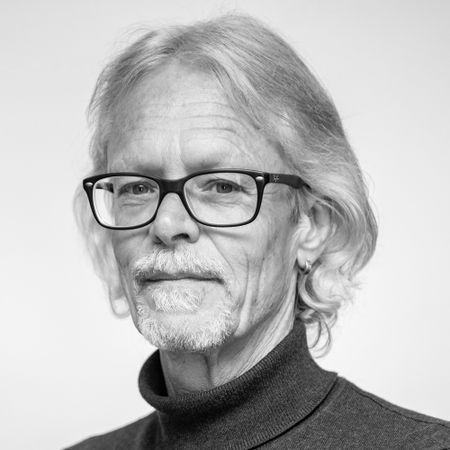I feel profoundly ambivalent about the continuing deliberations and negotiations about the formation of a government of national unity.
There’s a seductiveness to the idea, of course. Because I don’t want to give up on the fantasy of a multi-party government focused on making democracy work.
And because I feel that anything would be better than the scrapping, jostling and splintering that we have seen in coalitions at local government level. The latter have made a mockery of our democratic institutions and left communities more vulnerable than ever before.
But can governments of national unity work in practice? Are they not ultimately an assemblage of smoke and mirrors doomed to be exposed for what they are sooner or later?
Read more in Daily Maverick: GNU dawn for new government — unpacking the good, the bad and the ugly of it all
I served as a middle-level official in South Africa’s first government of national unity (GNU), under Nelson Mandela’s leadership between 1994 and 1999.
I was sceptical about its feasibility at the time. How on Earth, I thought, was the African National Congress (ANC) going to find ways of working productively with the former apartheid ruling party (the National Party) and the formation it had been locked in a civil war with — Inkatha, recast as the Inkatha Freedom Party (IFP) for the 1994 election?
I was perhaps especially sceptical given my positionality — deployed to KwaZulu-Natal for three years (1994-1996) to be part of the amalgamation of the former provincial and Bantustan administrations in the province. How much worse could it be?
The IFP had made only a last-minute decision to participate in the election. Peacemaking in the province was still underway, with no assurance that it would stick after the election. And the election in the province had been a mess, a negotiated conclusion finally being agreed to, with the IFP holding the slimmest of (manufactured) majorities.
I had cut my teeth as an activist in the then-Natal Midlands from the mid-1980s. I had come to fear the Inkatha impis, supported both directly and indirectly by apartheid security forces, which were ravaging townships and villages in the region.
And now I’d be in what felt like the belly of the beast, dragging myself back and forth between Durban, Pietermaritzburg and Ulundi (it took years for the IFP and the ANC to agree on the seat of the provincial capital) with a target on my back because of my years in anti-apartheid structures.
I was afraid.
Contemporary unity government
Three decades later I look back on my 1994-1996 KZN years almost with nostalgia. I was part of a team which knew exactly what its task was and was determined to make it work. Peace somehow was holding. The IFP had a deep vested interest in making a success of provincial government.
Under Jacob Zuma’s leadership, ANC provincial structures played ball in very difficult circumstances. I was grateful to Baba Zuma, every day of my working life. Disparate elements and structures of the state found common cause. Even when the National Party withdrew from the GNU in 1996, and the highly contested Truth and Reconciliation Commission started its work in the province in the same year, the fabric of governance held together.
I suppose these experiences have hardwired me into believing that governments of national unity can, and do, work. However, the conditions and the contexts of 1994 feel very different to those of 2024.
Back then we had dominant public discourses with an appetite for and expectation of transformation, renewal and unity. With some hubris (it might be said) those discourses embraced an exceptionality informed by a confidence that South African society could succeed where others had failed.
Today, in contrast, our public discourses seem to be dominated by moods of resignation and cynicism. We expect the worst. In 1994 there was the sense of a national project in which everyone had a stake. Today, it seems, we’d be okay if only the lights stayed on.
In 1994 Jacob Zuma was a respected liberation movement leader making important contributions to the building of a post-apartheid society. Today we are confronted by a very different Zuma, still dressed as a radical, but in fact profoundly reactionary, and intent, the evidence suggests, on harnessing ethnic identities and congregating those with an appetite for personal enrichment.
Read more in Daily Maverick: Swing towards right-wing populism — it’s up to the people to take a stand
Additionally, in 1994 we had an ANC with a clear majority but committed to sharing power with others in the national interest so that there was a fundamental generosity undergirding the GNU.
Today we have an ANC humbled (potentially a very good thing) and grasping for whatever undergirding is on offer (not such a good thing).
https://public.flourish.studio/visualisation/18161310/
Finally, and critically, in 1994 we had Madiba, an inspiring and decisive leader, someone who commanded respect across the political spectrum. This, I would argue, was (and remains) the single most important ingredient for the viability of a government of national unity.
I don’t want to give up on the possibility of a second GNU for South Africa, one that would vouchsafe people involved in it and the kinds of good memories that I have of my experiences in the period 1994-1996.
But where is the leadership that inspires belief and mobilises positive energy? Madiba had weaknesses as a leader. He made errors of judgement. His GNU administration got many things wrong.
But he found a way to hold us together. He enabled us to do some good things. And he showed us, every day, that he believed.
The last conversation I had with him was in 2011. Today I miss him more than ever. DM




